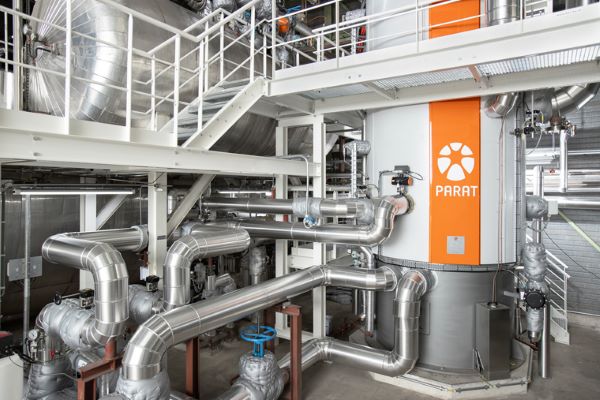This initiative marks the first deployment of the electric boiler within the Fujifilm Group

Electric boiler system in the FUJIFILM Manufacturing Europe B.V.
FUJIFILM Holdings Corporation introduces an electric boiler system at the facilities of FUJIFILM Manufacturing Europe B.V in the Netherlands, which primarily engages in the production of photographic materials and cell culture media.
Installing the electric boiler system and establishing a hybrid system in combination with a natural gas boiler significantly contribute to reducing CO2 emissions (Scope 1) generated from fuel that are technically challenging to decarbonize.
This initiative marks the first deployment of the electric boiler within the Fujifilm Group. The installation makes it possible to produce the steam necessary for the cell culture media production at the facility. Furthermore, by the fiscal year 2025, the energy-related CO2 emissions at the facility are expected to be reduced by approximately 26% compared to the fiscal year 2024. The installation marks a significant step forward in Fujifilm Group's efforts to achieve a carbon neutral society.
FUJIFILM Manufacturing Europe B.V. has been playing a leading role within the Fujifilm Group in addressing climate change, operating entirely on renewable wind energy. In addition, FUJIFILM Business Innovation announced the establishment of Circular Manufacturing Center in the Netherlands in June 2024 to promote resource circulation in Europe. The manufacturing center collects used toner cartridges from printers in Europe and remanufactures them as new toner cartridges at present. To fight against climate change, Fujifilm Group has set bold targets to reduce carbon dioxide emissions. The targets mean that Fujifilm Group will achieve net zero CO2 emissions from our energy consumptions by fiscal 2040 by maximizing the energy efficiency and transitioning to renewable energy sources. Additionally, Fujifilm Group is committed to reducing carbon dioxide emissions from the entire product lifecycle, covering raw material procurement, manufacturing, transportation, usage and disposal by 50% compared to the fiscal year 2019 levels, by fiscal 2030.
Subscribe to our newsletter & stay updated.